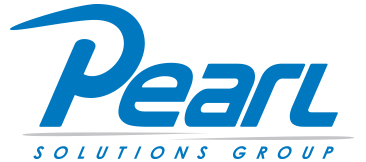As we all try to harness the power of AI to improve our small business operations, unfortunately, cybercriminals are using AI to find new ways to attack. With its ability to learn, analyze patterns, and automate tasks, AI has become a powerful tool for everyone, even those with malicious intent. Small businesses, often lacking robust cybersecurity infrastructure and advanced tools, have become prime targets for these AI-driven cyber attacks. Here are a few new methods to be aware of and how to mitigate them.
- Automated Social Engineering Attacks: Cybercriminals are leveraging AI to conduct sophisticated social engineering attacks. These attacks are designed to manipulate individuals into divulging sensitive information. AI algorithms can analyze vast amounts of data from social media and other online sources to create personalized and convincing phishing emails or messages. Small businesses must be vigilant in providing regular security awareness training to help their employees recognize and resist such manipulative tactics.
- Advanced Malware and Ransomware: The use of AI in crafting and deploying malware has escalated the severity of cyber threats. AI algorithms can identify vulnerabilities in a system, adapt to security protocols, and launch targeted attacks. Ransomware attacks, where malicious software encrypts a business’s data until a ransom is paid, have become more sophisticated and difficult to combat due to the application of AI. Being vigilant with timely software and security application updates will help reduce vulnerability gaps and data backups and network segmentation will help contain any successful attacks to minimize impact.
- AI-Powered Credential Stuffing: With the help of AI, cybercriminals can efficiently conduct credential stuffing attacks. This involves using stolen usernames and passwords from one platform to gain unauthorized access to other accounts where the user has reused the same credentials. Small businesses are advised to enforce strict password policies and consider implementing multi-factor authentication to enhance security. Dark web monitoring will alert you to compromised credentials so you can immediately change and strengthen those passwords.
- AI-Generated Deepfakes: The rise of AI-generated deepfake technology poses a new threat to small businesses. Cybercriminals can use AI to create realistic audio or video impersonations of key personnel, leading to fraudulent transactions or damaging the company’s reputation. Employee awareness and verification processes become crucial in mitigating the risks associated with deepfakes. Train them to be skeptical of unexpected or unusual requests, especially those involving financial transactions, based solely on electronic communication. You can also find video authentication tools that can help verify the authenticity of video messages or conference calls. These tools can detect anomalies in facial expressions, voice patterns, or other characteristics that may indicate a deepfake.
By staying informed, investing in robust security measures, and fostering a culture of cyber awareness, small businesses can fortify their defenses against emerging AI-driven threats. Get started by assessing where you stand today with our free cybersecurity assessment.




